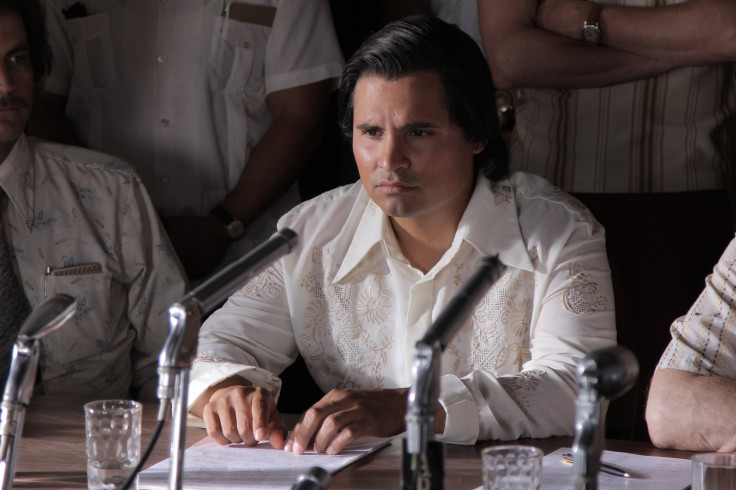
César Chavez, the United Farm Worker (UFW) co-founder and labor leader, has long been an icon for many Hispanics in the United States, especially in the south and southwestern states where he waged most of his battles to unionize and advocate for a largely Mexican farm worker labor force in the 1960s and 1970s. Now, a new biopic directed by Diego Luna and a petition drive seek to amplify Chavez’s national profile in a time when immigrants make up a greater percentage of the nation’s population – and federal lawmakers wrangle over a landmark reform of immigration laws.
“Cesar Chavez”, the Luna film set to hit theaters March 27th, takes the macro approach to about a decade of Chavez’s life. It darts from one UFW victory to another and acknowledges the pain and stress his hunger strikes and other sacrifices caused his family without fully committing to telling the story of them. Perhaps more relevant to an iconization project of this sort, it also skirts details about his stance on undocumented workers whom growers brought in to break union strikes (in 1973 the UFW formed “wet line” outposts on the Arizona-Mexico border to stop them from coming across, though he also spoke of them sympathetically as “doubly exploited”).
Meanwhile, in the weeks leading up to the movie’s release, the Cesar Chavez Foundation and the United Farm Workers are spearheading a petition drive to ask President Obama to declare March 31, Chavez’s birthday, a national day of service. The groups are trying to gather 100,000 signatures in the hopes of creating a day for Americans to “engage in community service and work for nonviolent change.” Actor and director Tony Plana, a longtime collaborator with the Teatro Campesino (the UFW’s theatrical wing) who met Chavez during a 1978 Teatro production in Los Angeles, has been lending a hand with promotional efforts.
Plana told the Latin Times that he attended several Chavez-organized fasts and marches held in northern California around that time. “He was one of the most significant influences in my life, a Gandhi of Latinos and workers in the fields,” he said, citing the labor leader’s nonviolent principles, religiosity and advocacy for the poor. “I saw the radical change he brought about in our consciousness” of who picks the nation’s food. “This kind of awareness is important for us as a national community, to start to change from all our self-centeredness to more awareness of the needs of others. To me he embodies that sacrificial spirit.”
© 2025 Latin Times. All rights reserved. Do not reproduce without permission.




